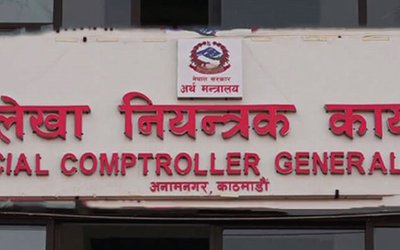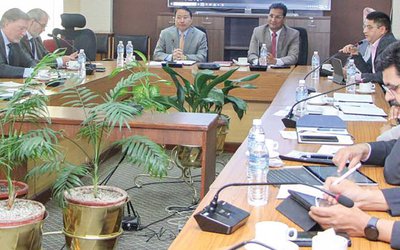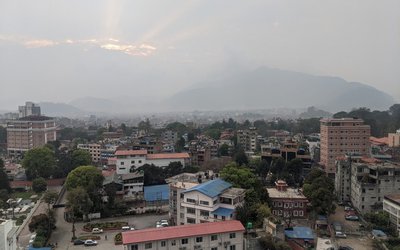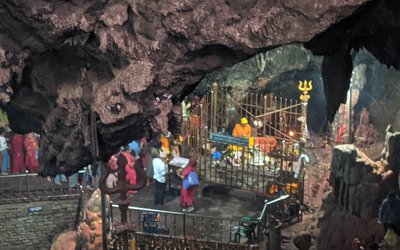At a time when Nepal has been facing a financial crunch on making investment to improve the electricity transmission lines, the recent decision of the Asian Development Bank and the Norwegian government promises to make a difference.
Nepal’s transmission lines have been saturated and are not in a position to evacuate power from hydropower plants for distribution to the load centers. According to Nepal Electricity Authority, the current transmission lines need to be improved.
Although Nepal’s power generation has gone up over the years, the transmission lines cannot meet the growing requirement.
That is where the new agreement seems to help. The Asian Development Bank (ADB) and the Norwegian Ministry of Foreign Affairs have signed a co-financing agreement to fund the South Asia Sub-regional Economic Cooperation (SASEC) Power Expansion Project.
“ADB will administer a grant of 360 million Norwegian Kroner (Equivalent to 60 million USD, or Rs. 5 billion and 851million) from the Government of Norway for the implementation of the SASEC Power System Expansion Project. The main objective of the project is to increase electricity access and help overcome power shortage in Nepal. In addition, the project aims to export surplus power to neighboring India by strengthening and increasing the power transmission capacity and network in the country,” according to a press release issued by the Asian Development Bank.
“This is by far the largest single project supported by the Norwegian Government in the energy sector of Nepal. We believe that the project will leverage private sector investment and extend access to energy services in Nepal. This is in line with the Norwegian development policy on energy”, Norwegian Ambassador to Nepal Kjell Tormod Pettersen said during the signing of co-financing agreement with ADB.
“There is also a clear focus on immediate poverty reduction in the project as it supports the extension of electricity distribution line to more than 70,000 households in the transmission corridor,” he added. The grant from Norway will complement a $180 million loan from ADB’s concessional resources (the Asian Development Fund); a loan of $120 million from the European Investment Bank; and a $11.2 million grant from the ADB administered Strategic Climate Fund.
The project aims at increasing the mini grid based renewable energy systems in off-grid areas and improving the management capacity of Nepal Electricity Authority (NEA) and Alternative Energy Promotion Centre (AEPC). Under the power transmission and distribution capacity development component, approximately 45 kilometers of 400 kV transmission line, 192 kilometers of 220 kV transmission line along Kali Gandaki Corridor and Marsyangdi – Kathmandu route; will be constructed. Likewise, grid substations will be constructed, augmented and replaced in various parts of the country. The project will strive to achieve 100% electrification by assisting connection to marginalized households in the new distribution corridors.
The Grant Agreement for the provision of $60 million equivalent (equivalent to Rs. 5 billion and 851 million) was signed by Madhu Kumar Marasini, Joint Secretary, Ministry of Finance and Mr. Kenichi Yokoyama, ADB’s Country Director for Nepal, on behalf of the Government of Nepal and ADB, respectively. Kjell Tormod Pettersen, Ambassador of Norway to Nepal, was also present on the occasion.
“With several new hydropower projects coming on board in the next few years, this project is crucial in developing a robust and reliable transmission network allowing transfer of power to main load centers for domestic needs as well as to give Nepal the ability to export at least 1,200 MW of electricity to India,” said Joint Secretary Marasini.
“Access to electricity is vital for Nepal’s all round development. This project, a priority initiative of SASEC, will help NEA to substantially upgrade and expand transmission and distribution lines and substations. The project will also help AEPC to provide electricity to rural communities with mini grid renewable energy systems,” said ADB’s Country Director for Nepal Kenichi Yokoyama.
The SASEC Power System Expansion project is expected to be completed by 31 December 2021. The renewable energy portion of the SASEC Power System Expansion project will be implemented by the AEPC and the components related to power transmission and distribution network improvement activities are to be implemented by NEA.
With the support from ADB and Norwegian government, Nepal has funds now to implement the projects. As many other smaller projects have been facing a lot of problems in the process of construction of transmission lines, it is yet to see how the government will implement the new projects.
- TANAHU HYDROPOWER PROEJCT: A Significant Achievement
- Apr 15, 2024
- AMBASSADOR HANAN GODAR: Sharing Pain With A Nepali Family
- Mar 30, 2024
- VISIT OF KfW AND EIB TO NEPAL : Mission Matters
- Mar 25, 2024
- NEPAL BRITAIN SOCIETY: Pratima Pande's Leadership
- Mar 24, 2024
- NEPAL ARMY DAY: Time To Recall Glory
- Mar 15, 2024
















